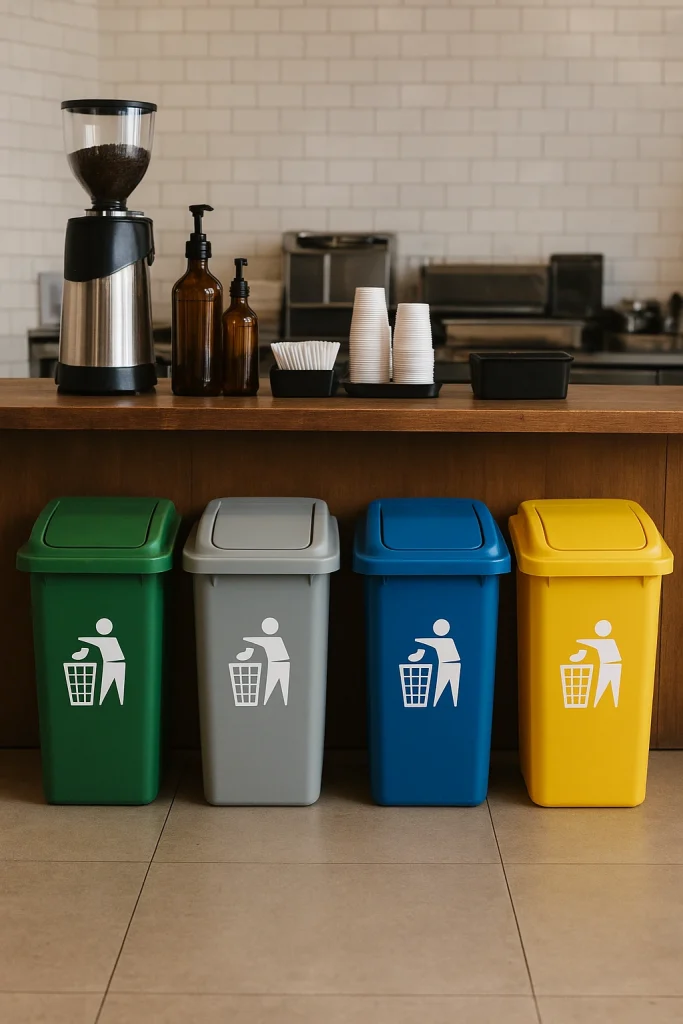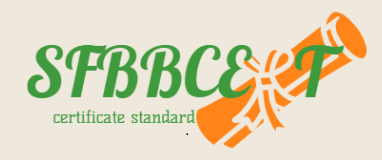
Introduction
Waste management in cafés is often underestimated, yet it plays a central role in ensuring food safety, customer satisfaction, and regulatory compliance. A clean café is not only visually appealing but also essential for preventing cross-contamination, pest infestations, and unpleasant odors.
For café owners and managers, implementing structured hygiene protocols is just as important as serving high-quality coffee or crafting delicious pastries. International standards such as SFBB (Safer Food, Better Business) provide clear frameworks for establishing a hygienic working environment. Moreover, obtaining certifications such as SFBBcert demonstrates to customers and inspectors that your café is committed to following best practices.
This article dives into the right and wrong ways of managing waste in cafés, offering actionable steps to maintain hygiene while boosting your café’s reputation.
Why Waste Management Matters in Cafés
Waste in cafés includes more than just leftover food. It covers a wide range of by-products:
-
Coffee grounds and powders
-
Used paper cups and napkins
-
Dairy and milk containers
-
Packaging from baked goods
-
Food scraps and leftovers
-
General cleaning materials
When not handled correctly, this waste can quickly become a breeding ground for bacteria, attract pests, and compromise the overall atmosphere of the café. Customers are highly sensitive to hygiene standards—seeing overflowing bins or unpleasant smells can discourage them from returning.
By applying hygiene protocols aligned with SFBB and working toward SFBBcert, café owners can build a safer, cleaner environment for both employees and guests.
The Do’s of Café Waste Management
1. Separate Waste Streams Properly
One of the golden rules in café hygiene is separating waste categories. Mixing food waste, recyclables, and cleaning residues leads to contamination and complicates disposal.
Cafés should implement a color-coded bin system:
-
Green bins: Food scraps, coffee grounds, tea bags, and biodegradable waste
-
Blue bins: Recyclables like plastic bottles, cans, and cardboard
-
Red bins: Non-recyclable items and cleaning residues
-
Brown bins: Used dairy or milk packaging
-
Special containers: Coffee powders and espresso grounds (to avoid clogging drains or causing bad odors)
Having a separate container specifically for coffee powders ensures the café maintains freshness and avoids cross-contamination in other bins.
2. Use Covered and Lined Bins
Bins should always be covered with lids and lined with disposable, leak-proof bags. Open bins invite pests such as flies or rodents, creating health hazards. Lined bins also make it easier for staff to dispose of waste without direct contact.
3. Regular Waste Removal
Café waste must be collected and removed several times a day, not just at closing time. Coffee grounds, dairy residues, and leftover pastries can quickly produce unpleasant odors if left unattended.
A simple schedule for waste removal could be:
-
Morning: After breakfast service
-
Midday: After lunch/early rush
-
Evening: After dinner or before closing
Frequent removal is not only a hygiene requirement but also part of the SFBB guidelines for maintaining a safe kitchen environment.
4. Train Staff in Hygiene and Waste Protocols
Employees are the backbone of café hygiene. Regular training ensures they understand why waste separation, proper disposal, and cleanliness are non-negotiable.
Staff should learn:
-
Correct use of color-coded bins
-
The importance of sealing bags before disposal
-
Safe handling of sharp objects (e.g., broken glass)
-
The hygiene risks of neglecting proper waste management
Many cafés incorporate training into their onboarding process, while others offer refresher sessions every few months. Achieving SFBBcert often requires documentation of staff training programs, proving your team follows proper food safety practices.
5. Maintain Clean Waste Areas
Even if bins are regularly emptied, the surrounding area can still harbor bacteria. Floors around bins should be disinfected daily, and bins themselves should be washed and sanitized at least twice a week.
Unclean waste areas not only violate hygiene standards but also send negative signals to customers if visible.
6. Implement Recycling Initiatives
Sustainability is an increasingly important part of café culture. Beyond compliance, cafés can enhance their brand image by adopting green practices, such as:
-
Composting coffee grounds (used as fertilizer by local farms or gardeners)
-
Recycling cardboard coffee cup holders
-
Partnering with recycling companies for plastics and glass
Customers notice these efforts, and promoting them can improve loyalty while meeting SFBBcert sustainability expectations.
The Don’ts of Café Waste Management
1. Don’t Mix Food Waste with Cleaning Chemicals
A major mistake seen in many cafés is discarding food waste in the same bin as cleaning materials (like mop cloths, tissues, or sanitizing wipes). This cross-contamination increases risks when handling waste and creates hazardous mixtures.
2. Don’t Leave Bins Overflowing
Overflowing bins are one of the fastest ways to damage a café’s reputation. Besides being unpleasant to customers, exposed waste attracts pests such as cockroaches, mice, or flies.
A good rule of thumb: If a bin is two-thirds full, it’s time to empty it.
3. Don’t Ignore Odor Control
Cafés often deal with strong-smelling waste such as spoiled milk, coffee grounds, or food scraps. Allowing odors to linger creates discomfort for both staff and guests.
Solutions include:
-
Frequent emptying of bins
-
Using odor-neutralizing bin liners
-
Proper ventilation in waste areas
4. Don’t Neglect Legal and Regulatory Requirements
Every country has its own food safety and waste disposal regulations. Ignoring these not only risks fines but also damages a café’s credibility.
Internationally, aligning practices with SFBB and obtaining SFBBcert helps demonstrate compliance with recognized standards and assures customers of the café’s dedication to food safety.
5. Don’t Forget Special Waste Categories
Some items require special attention:
-
Coffee powders and espresso grounds: Must have their own separate containers
-
Glass bottles: Should be placed in a dedicated recycling bin
-
Cooking oils: Should never be poured down drains—partner with licensed oil recyclers instead
Ignoring these categories can cause blockages, safety hazards, and regulatory issues.
Best Practices for Café Waste Zones
To ensure optimal hygiene, cafés should designate a specific waste zone away from food preparation areas. This prevents contamination while maintaining a professional, clean atmosphere.
Key elements of an effective waste zone include:
-
Clear signage above bins (with images for easy recognition)
-
Non-slip, easy-to-clean flooring
-
Proper ventilation
-
Access control (only staff allowed)
Many cafés also keep waste collection logs to monitor disposal habits and ensure compliance with SFBBcert inspections.
Benefits of Proper Waste Management in Cafés
-
Improved Hygiene: Reduces the risk of bacterial growth and foodborne illnesses.
-
Customer Trust: Guests notice cleanliness, and it reflects on the café’s professionalism.
-
Pest Control: Proper disposal discourages rodents and insects.
-
Compliance: Following SFBB guidelines protects against fines and penalties.
-
Sustainability: Recycling and composting initiatives enhance your brand’s eco-friendly reputation.
-
Easier Certification: Meeting these standards makes obtaining SFBBcert simpler and faster.
Conclusion
Waste management in cafés is more than a back-end task—it directly impacts food safety, customer satisfaction, and overall brand success. By separating waste streams, maintaining bin hygiene, training staff, and following international frameworks such as SFBB, cafés can elevate their hygiene standards significantly.
Striving for SFBBcert is not just about compliance—it’s about showing customers that your café values cleanliness, responsibility, and excellence.
In a competitive café market, these small but critical steps can make the difference between being just another coffee shop and becoming a trusted, respected brand.

No comment